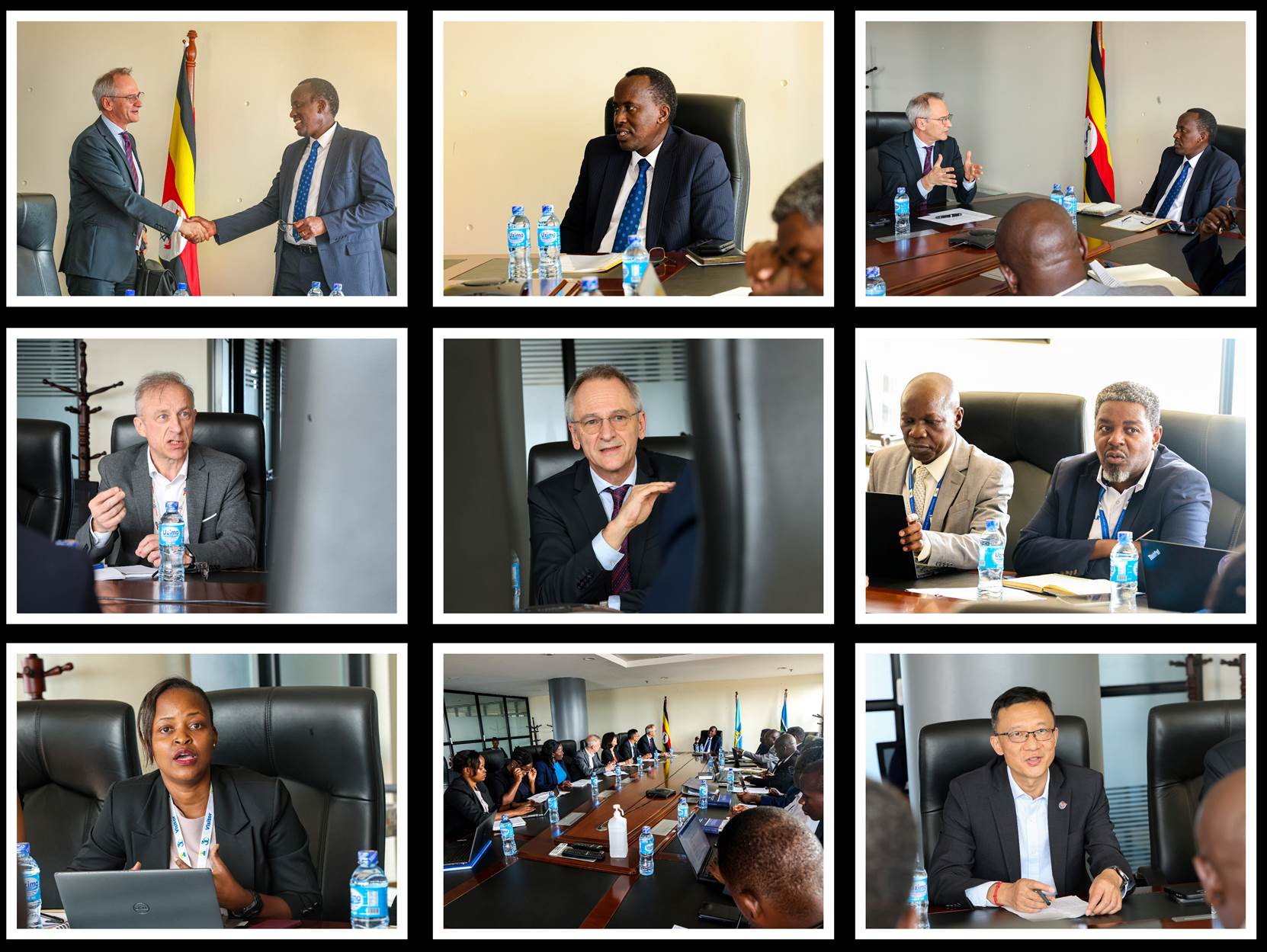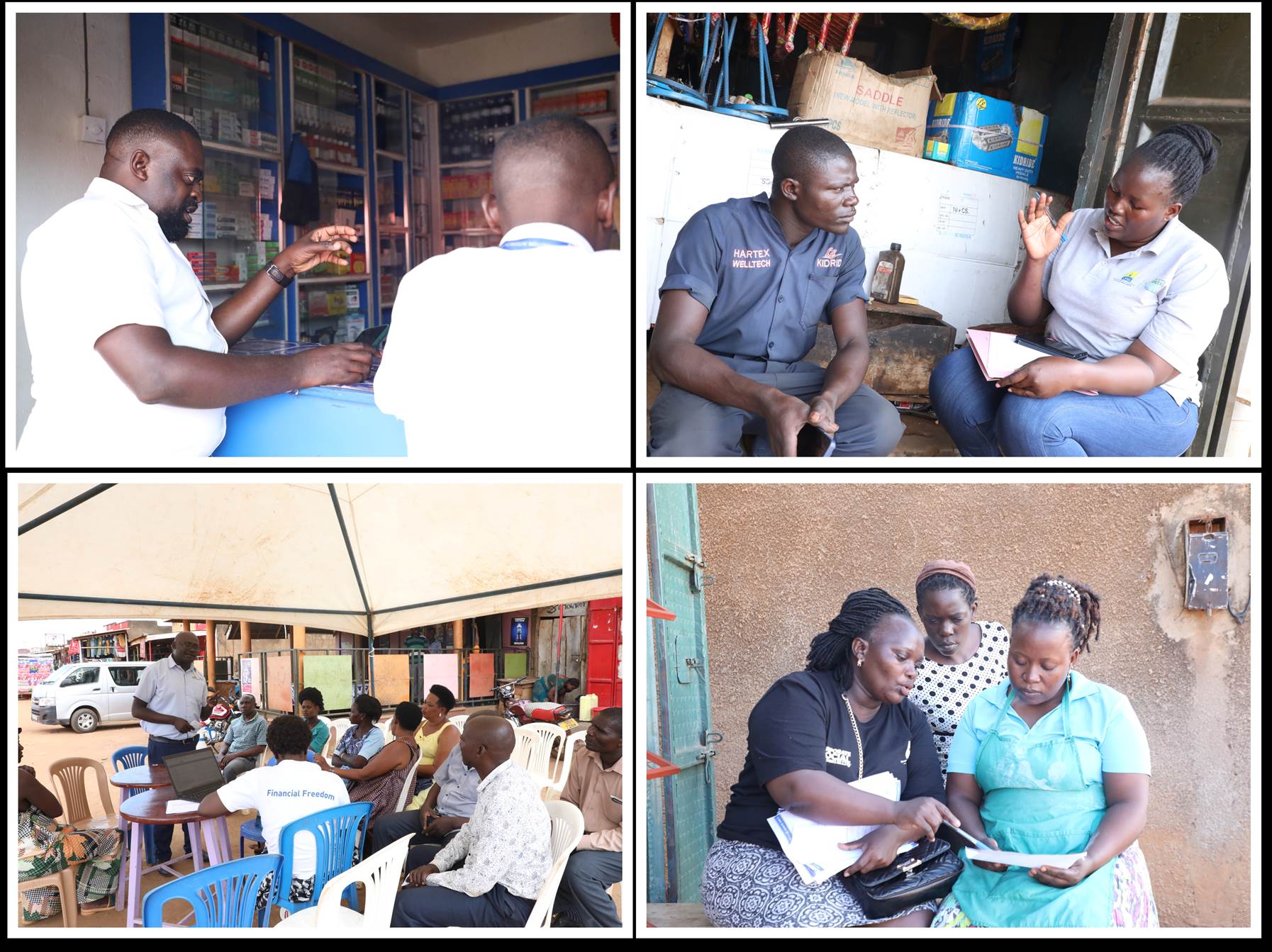In a bid to fight tax evasion and avoidance, plus protecting the integrity of tax systems, it has become increasingly important for tax administrators like URA to include an aspect of Exchange of Information(EOI) to facilitate enforcement of domestic Taxes. Denis Kugonza Kateeba, the Commissioner Tax Investigations, shares insights on how URA has benefited from EOI.
What is the Exchange of Information Exchange program?
Exchange of Information is the cross-border sharing of taxpayer information by tax administrations under a legal framework.
According to the Organisation for Economic Co-operation and Development (OECD) Global Forum annual report, 2020, multilateral co-operation on transparency and the exchange of information for tax purposes is becoming an increasingly important tool for tax administrations in mobilizing revenues and ensuring that all taxpayers pay what is due. This is on the backdrop of the increased economic globalization that has made it easy for taxpayers to hide income and assets in other jurisdictions behind layers of corporate entities, consequently making it difficult for tax authorities to investigate and audit cases of cross-border tax evasion.
After studying the global trends of offshore tax evasion, on 4th November 2015, Uganda signed the OECD Multilateral Convention on Mutual Administrative Assistance in Tax Matters (MAAC). It became the 8th African country and the 90th jurisdiction of the convention.
On the whole, EOI is aligned to Uganda’s Domestic Revenue Mobilisation interventions ingrained in the URA’s corporate plan.
What are the objectives of the EOI?
The primary objective of the Exchange of Information program is to boost voluntary tax compliance by tackling tax evasion and other illicit financial flows while adhering to the international standards and obligations agreed upon in the tax information exchange agreements.
Has the Exchange of Information program taken root already in Uganda?
Yes, the Exchange of Information on request is in place and soon, URA will transition to Automatic with an international commitment date of 1st September, 2023. This date is supported by an action plan to set up the legal and regulatory framework; IT and administrative infrastructure, and Confidentiality and data safeguards in time for the first Automatic Exchange of Information (AEOI) in 2023. So, at the moment, URA is still making requests to partner states with specifications of the taxpayers being examined by the operational Departments responsible for tax audits and investigations in URA.
The EOI unit reviews all requests to ensure adherence to both the domestic legal framework and international standards.
How is the EOI incorporated into the URA business?
Exchange of Information is a tax compliance tool that supports audits and investigations on cross-border transactions, especially for multinationals and high net worth individuals.
The core function of the Exchange of Information Unit is to process all incoming and outgoing information requests in line with international standards. These include the OECD Multilateral Convention on Mutual Administrative Assistance in Tax Matters (MAAC), the ATAF Agreement on Mutual Administrative Assistance in Tax Matters (AMAATM), the East African Community Customs Management Act (EACCMA), and Double Taxation Agreements (DTA).
The other function is to coordinate and participate in Peer Reviews involving Uganda and all the other treaty partners and jurisdictions of relevance. This includes contributing to the body of knowledge in setting up and updating EOI standards to match the evolving dynamics of cross-border taxation and tax evasion schemes. However, as all this is being done, the unit is also mandated to liaise with the Ministry of Finance Planning and Economic Development(MoFPED) on tax policy matters relating to international tax cooperation, among others.
What are some of the key achievements of the EOI function in Uganda?
Based on the government’s clear strategies, firm political support, administrative commitment, and well-coordinated support from development partners, so much has been achieved under the EOI function. For example; through the exchange of information and audits, the government of Uganda has been able to recover UGX 259,935,498,396 between 2014 and 2021.
On another front, the EOI function has also witnessed the number of information requests from authorities in Uganda grow from two (02) in 2012 to one hundred seventy (170) between 2014 and 2022. Therefore, these achievements have proven Uganda as an effective and efficient player in the tax transparency agenda in Africa.
Why should taxpayers take interest in the initiative?
From the objectives of this initiative, taxpayers are expected to voluntarily disclose all incomes from the offshore wealth that ought to have been disclosed but were not declared or were partially declared. They are encouraged to do so before being prompted by any action or threat of action on the issue by URA. As a result of international cooperation, tax evaders face an increasing risk of detection.
Our stakeholders in the Automatic Exchange of Information program can expect a level playing field for all key players in the development of Uganda, especially financial institutions, importers, exporters, industrialists, and others.










